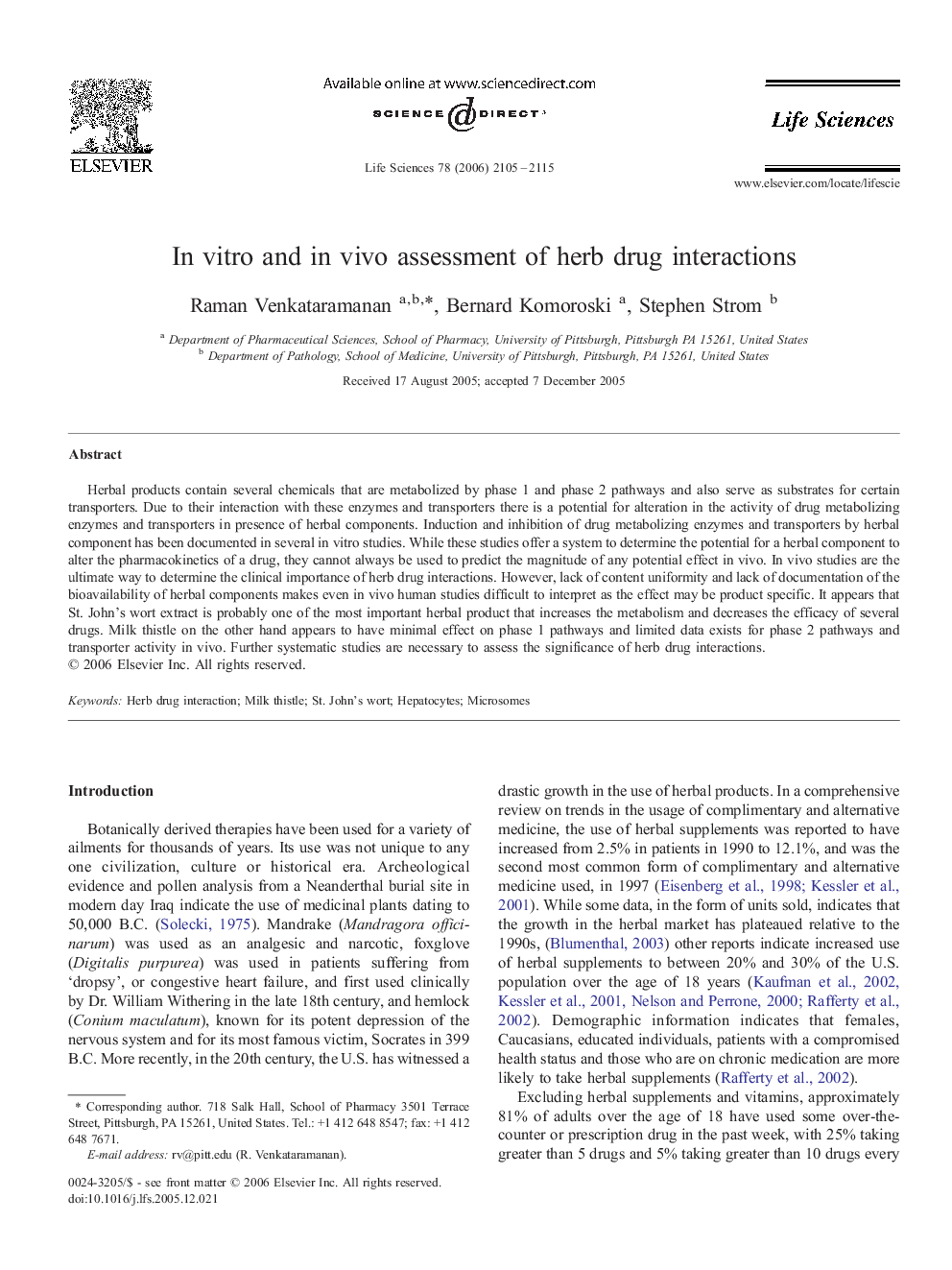| Article ID | Journal | Published Year | Pages | File Type |
|---|---|---|---|---|
| 2554769 | Life Sciences | 2006 | 11 Pages |
Herbal products contain several chemicals that are metabolized by phase 1 and phase 2 pathways and also serve as substrates for certain transporters. Due to their interaction with these enzymes and transporters there is a potential for alteration in the activity of drug metabolizing enzymes and transporters in presence of herbal components. Induction and inhibition of drug metabolizing enzymes and transporters by herbal component has been documented in several in vitro studies. While these studies offer a system to determine the potential for a herbal component to alter the pharmacokinetics of a drug, they cannot always be used to predict the magnitude of any potential effect in vivo. In vivo studies are the ultimate way to determine the clinical importance of herb drug interactions. However, lack of content uniformity and lack of documentation of the bioavailability of herbal components makes even in vivo human studies difficult to interpret as the effect may be product specific. It appears that St. John's wort extract is probably one of the most important herbal product that increases the metabolism and decreases the efficacy of several drugs. Milk thistle on the other hand appears to have minimal effect on phase 1 pathways and limited data exists for phase 2 pathways and transporter activity in vivo. Further systematic studies are necessary to assess the significance of herb drug interactions.
